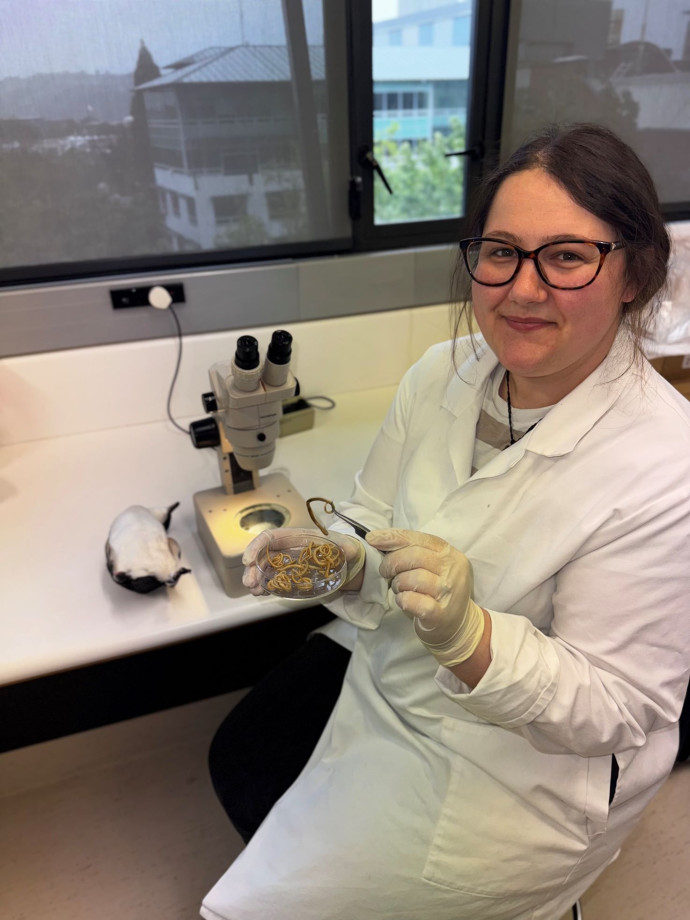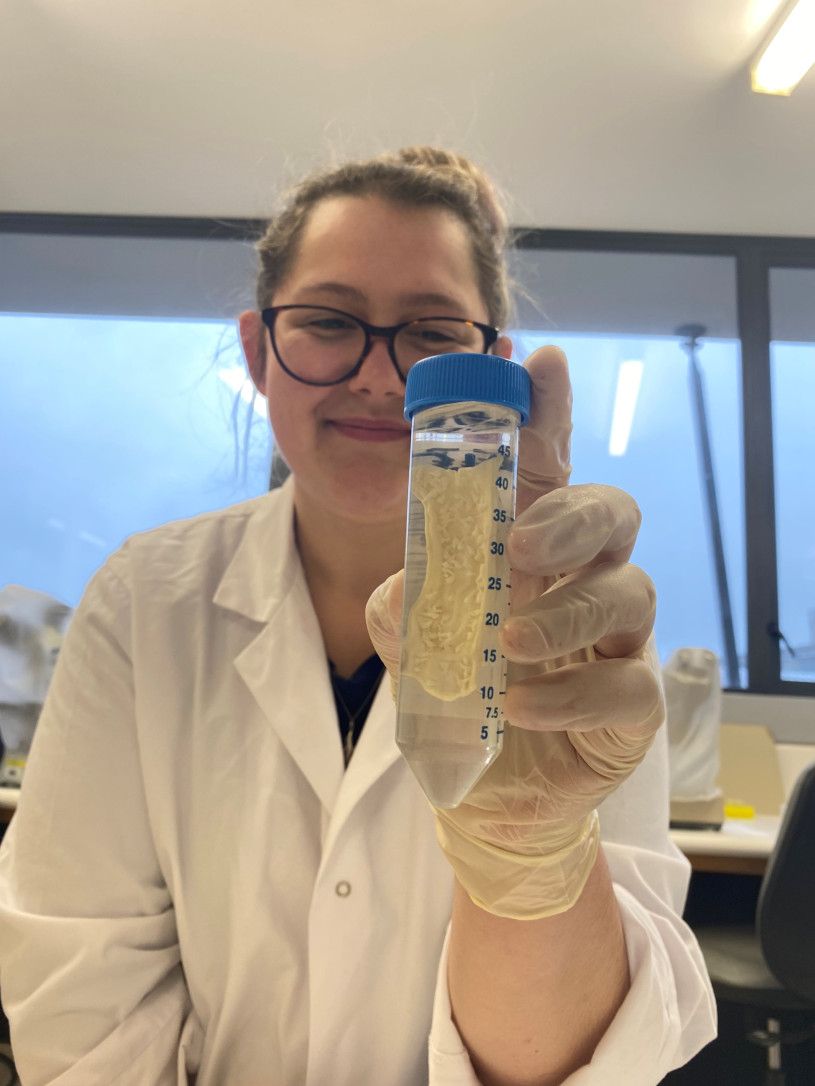Could pollution-hungry parasites clean up our oceans?

Dr Jerusha Bennett from Ōtākou Whakaihu Waka – the University of Otago will investigate the role of parasites in mopping up marine pollution
We all know our oceans are in trouble. Plastic and heavy-metal pollution is harming our marine life, threatening our kaimoana seafood, and damaging our natural environment. This crisis requires immediate action with new perspectives and approaches. What if we looked to an existing naturally occurring solution?
Parasites that live in the gut are often thought of as villains, but they may be ‘hidden protectors” that can help us clean up our oceans thanks to a quirk in how they eat. Unlike us, parasites don’t have a gut, absorbing food directly through their skin via diffusion instead. This means they have the potential to absorb harmful microplastics and toxic heavy metals ingested by their hosts.
This Marsden Fund Fast-Start grant proposes a fresh perspective to the pollution crisis, investigating how intestinal parasites can act as filters that soak up harmful environmental pollutants. Dr Bennett will use seabirds that have died to study how parasites inside their gastrointestinal systems might function as pollution sponges. As humans continue to have a devastating impact on te taiao the environment, this type of research could change the way humans interact with wildlife and think about adaptation and resilience.

Dr Jerusha Bennett (photo supplied)
